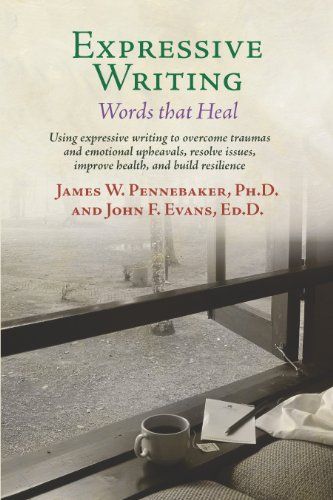Expressive Writing: Healing through Words

In the realm of therapeutic practices, expressive writing stands as a powerful tool for healing emotional wounds and promoting overall well-being. By putting pen to paper or fingers to keyboard, individuals have discovered a profound catharsis, leading to improved mental health and increased self-awareness. Let's explore the benefits of expressive writing and how it can pave the way for personal growth and healing.
Expressive writing, also known as therapeutic writing, involves the act of expressing one's deepest thoughts, feelings, and experiences through written words. It provides a safe space for individuals to explore their emotions and confront traumatic events. By externalizing their internal struggles, people gain clarity, perspective, and a sense of release.
Research has shown that regularly engaging in this practice can alleviate symptoms of anxiety and depression. The act of writing activates the brain's processing centers, enabling individuals to make sense of their experiences and emotions, thereby promoting healing.
James Pennebaker, author of "Expressive Writing: Words that Heal," conducted research that has demonstrated the profound benefits of expressive writing. According to Pennebaker, "When we translate an experience into language we essentially make the experience graspable. We create a beginning, a middle, and an end."
In a world where emotional well-being is crucial, expressive writing provides a powerful avenue for healing. By embracing the transformative potential of putting words to paper, individuals can find solace, gain insight, and embark on a journey of personal growth and recovery. So grab a pen and let your words lead you towards healing.

Pennebaker's 4-day writing exercises, also known as the "Writing to Heal" protocol, are a specific form of expressive writing designed to promote emotional processing and healing. The exercises typically involve a structured approach over four consecutive days, each focusing on a different aspect of the individual's emotional experience. Here is a breakdown of the four-day writing protocol:
Day 1: Writing about a traumatic event:
On the first day, individuals are encouraged to write about a specific traumatic event or emotionally challenging experience they have encountered. They are asked to delve into the details of the event, including thoughts, feelings, and any associated physical sensations.
Day 2: Emotional expression and reflection:
On the second day, individuals continue to explore their emotions related to the traumatic event. They are encouraged to express their deepest thoughts and feelings without judgment, providing an outlet for emotional release and self-reflection.
Day 3: Finding meaning and understanding:
The third day focuses on finding meaning and understanding from the traumatic experience. Individuals are encouraged to reflect on any insights gained, lessons learned, or personal growth that may have emerged as a result of the event.
Day 4: Looking to the future:
The final day of the exercise centers on looking forward. Individuals are prompted to consider how the traumatic event has influenced their perspectives, goals, and aspirations. They can explore ways in which they can move forward and create a positive future despite their past experiences.
These writing exercises aim to facilitate emotional processing, provide a sense of closure, and promote psychological healing. The structured approach allows individuals to gradually work through their emotions and gain a deeper understanding of their experiences, ultimately fostering personal growth and well-being.
Give them a try!